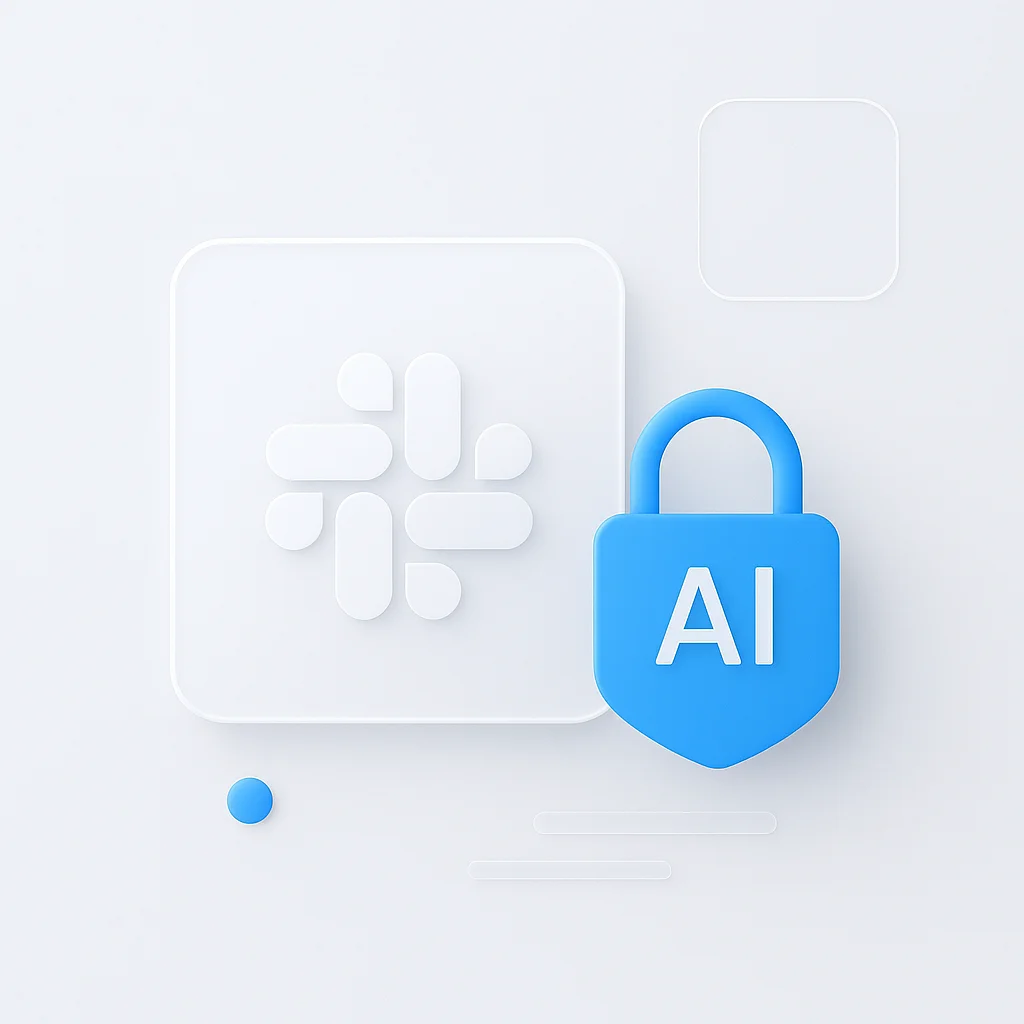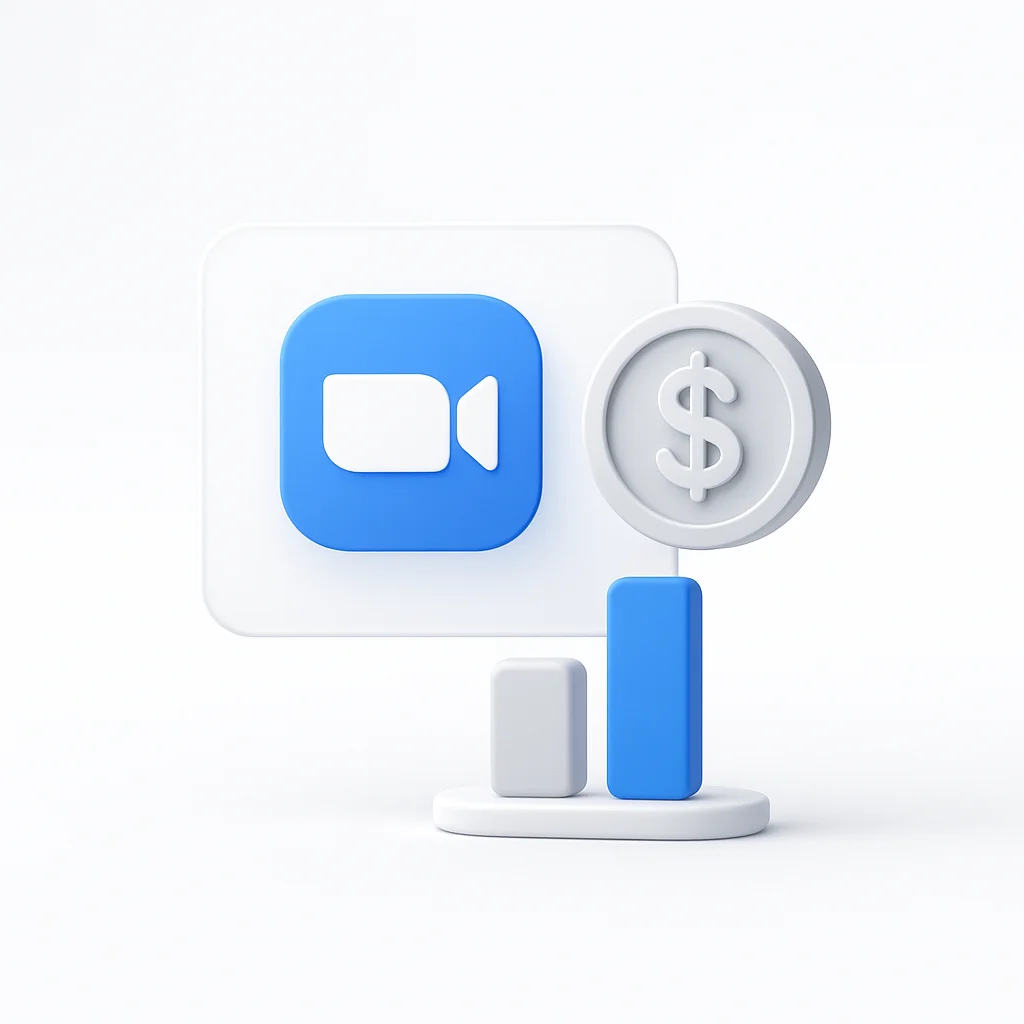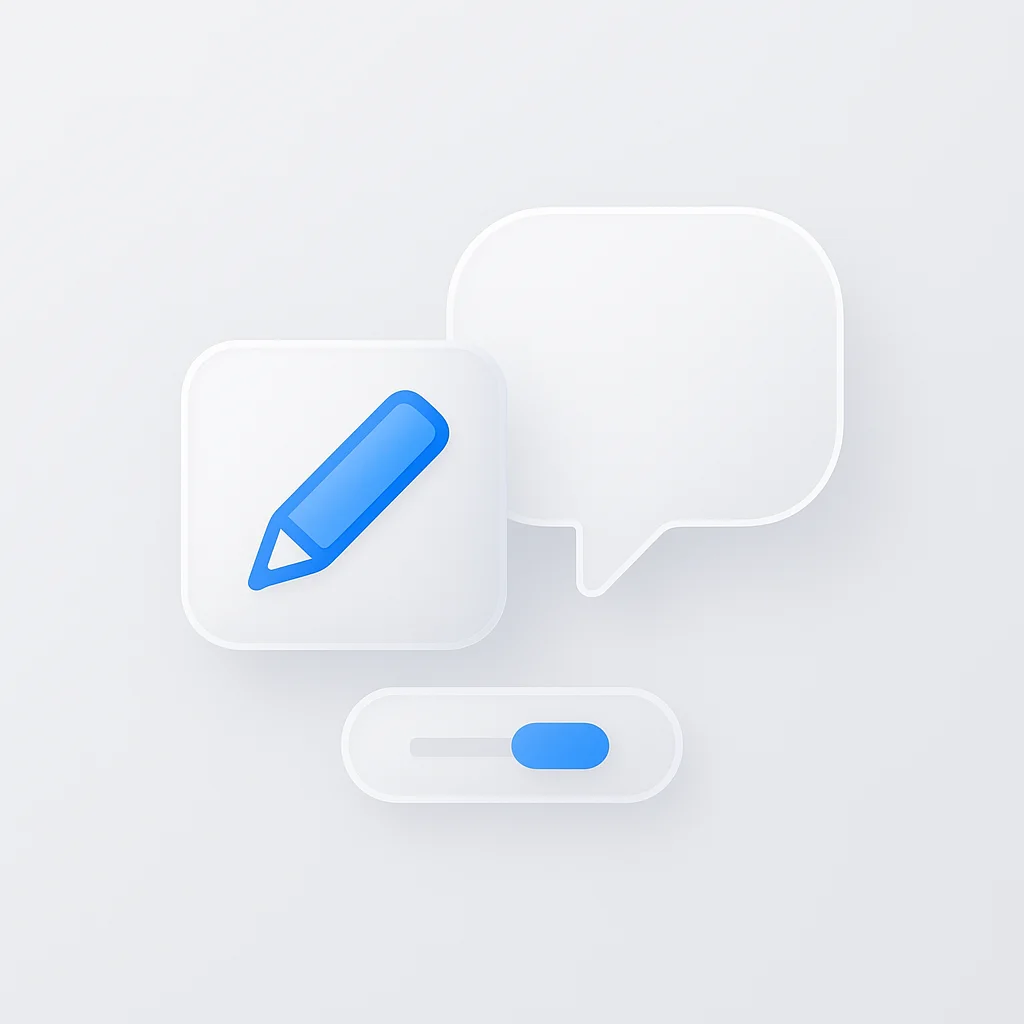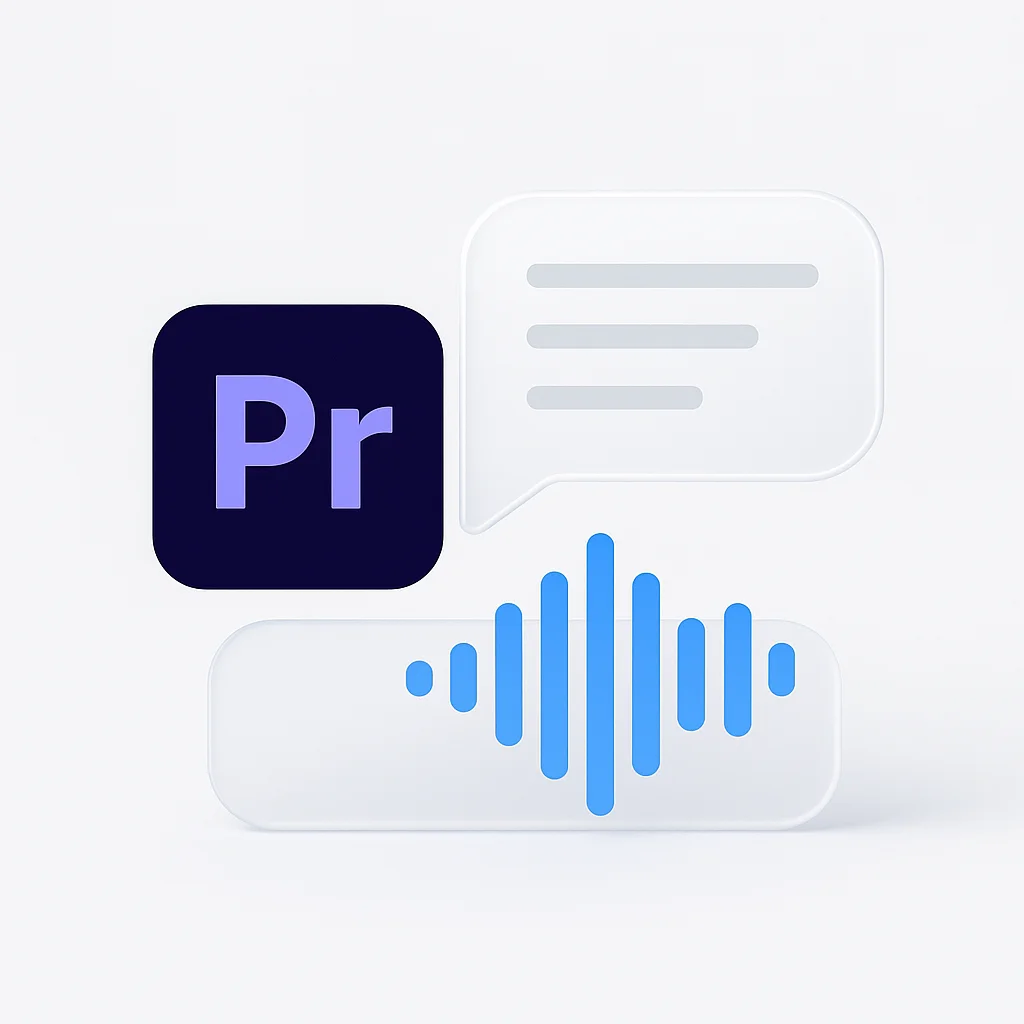Slack Huddle Recording and AI Summarization: Complete Guide 2025
Slack has quietly rolled out automatic huddle recording and AI summarization features for all Pro plan subscribers. This means your Slack huddles are now being recorded, transcribed, and processed by AI systems without requiring explicit consent for each session.
If you’re using Slack huddles for team communication, your conversations are now automatically captured and summarized by AI. Here’s everything you need to know about Slack huddle recording, how AI summarization works, and what this means for your business privacy.
How Slack Huddle Recording Works
Slack’s new huddle recording feature automatically captures and processes your team’s audio conversations. Here’s what happens when you start a huddle:
Automatic Huddle Recording Process
- Recording Activation: Every Slack huddle is now automatically recorded by default
- Real-Time Transcription: Speech is converted to text during the huddle
- AI Summarization: After the huddle ends, AI generates key points and action items
- Huddle Notes Generation: Automatic notes are created and shared with participants
What Gets Recorded in Slack Huddles
- All spoken conversations during the huddle session
- Screen sharing content when enabled
- Background audio and ambient sounds
- Participant join/leave timestamps and activity
The huddle recording and summarization happens automatically for all Pro plan subscribers, representing a significant shift in how Slack handles voice communications.
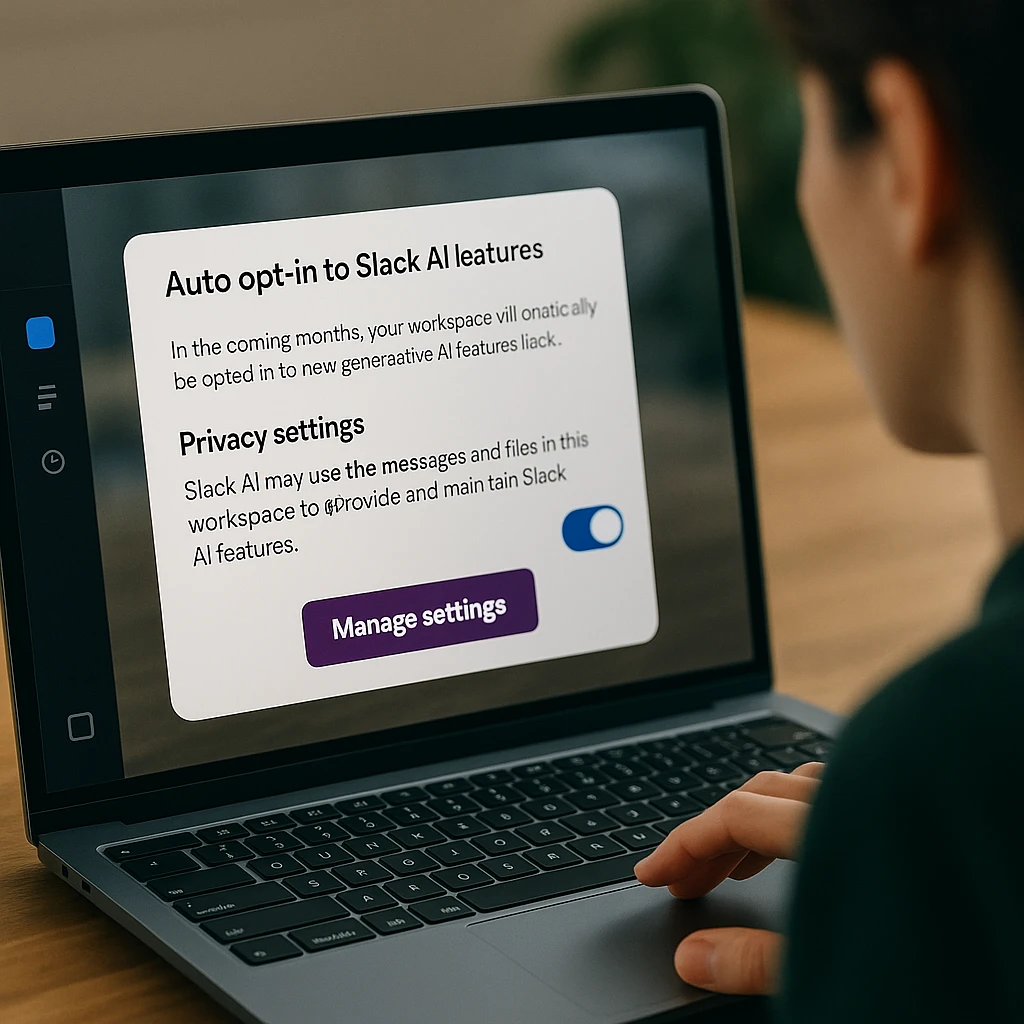
Privacy Concerns with Slack Huddle Recording
Your Huddle Conversations Are Being Processed
When Slack huddle recording is active, your private team conversations become data for AI processing. This includes:
- Sensitive business discussions shared during huddles
- Personal employee conversations and private feedback
- Client-related discussions and confidential project details
- Strategic planning sessions and internal decision-making
- Spontaneous brainstorming and creative discussions
Huddle Recording Data Storage
Unlike traditional meeting recordings that you control, Slack huddle recordings are:
- Automatically stored on Slack’s servers
- Processed by AI systems for summarization and analysis
- Accessible to workspace admins regardless of channel privacy settings
- Retained according to Slack’s data policies rather than your preferences
The Salesforce Connection
Slack’s integration with Salesforce means your conversation data may be shared across multiple platforms and potentially used for broader AI training initiatives. This creates additional privacy concerns for businesses that didn’t explicitly agree to this level of data sharing.
Limited Control Over Data Usage
Unlike other AI tools that require explicit consent, Slack’s approach assumes consent through continued service usage. This raises questions about:
- Data retention policies and how long conversation data is stored
- Third-party access to your business communications
- International data transfers and compliance with regional privacy laws
- Deletion rights and your ability to remove data from AI training sets
How to Control Slack Huddle Recording
Managing Huddle Recording Settings
To control how Slack records and summarizes your huddles:
- Access Workspace Settings: Navigate to your Slack workspace admin panel
- Find Huddle Preferences: Look for “Huddles” or “Audio & Video” settings
- Disable Auto-Recording: Turn off automatic huddle recording if available
- Review AI Summarization: Check settings for automatic huddle note generation
- Set Recording Permissions: Configure who can initiate huddle recordings
Immediate Actions for Huddle Privacy
- Audit Existing Huddle Recordings: Check what huddles have already been recorded
- Notify Team Members: Inform your team about automatic huddle recording policies
- Review Huddle History: Examine past huddle summaries and transcriptions
- Update Meeting Protocols: Establish guidelines for sensitive discussions
Admin Settings to Check
Navigate to your Slack workspace settings and look for:
- AI and machine learning preferences
- Data export and retention policies
- Third-party app permissions and integrations
- Enterprise Key Management options for additional security
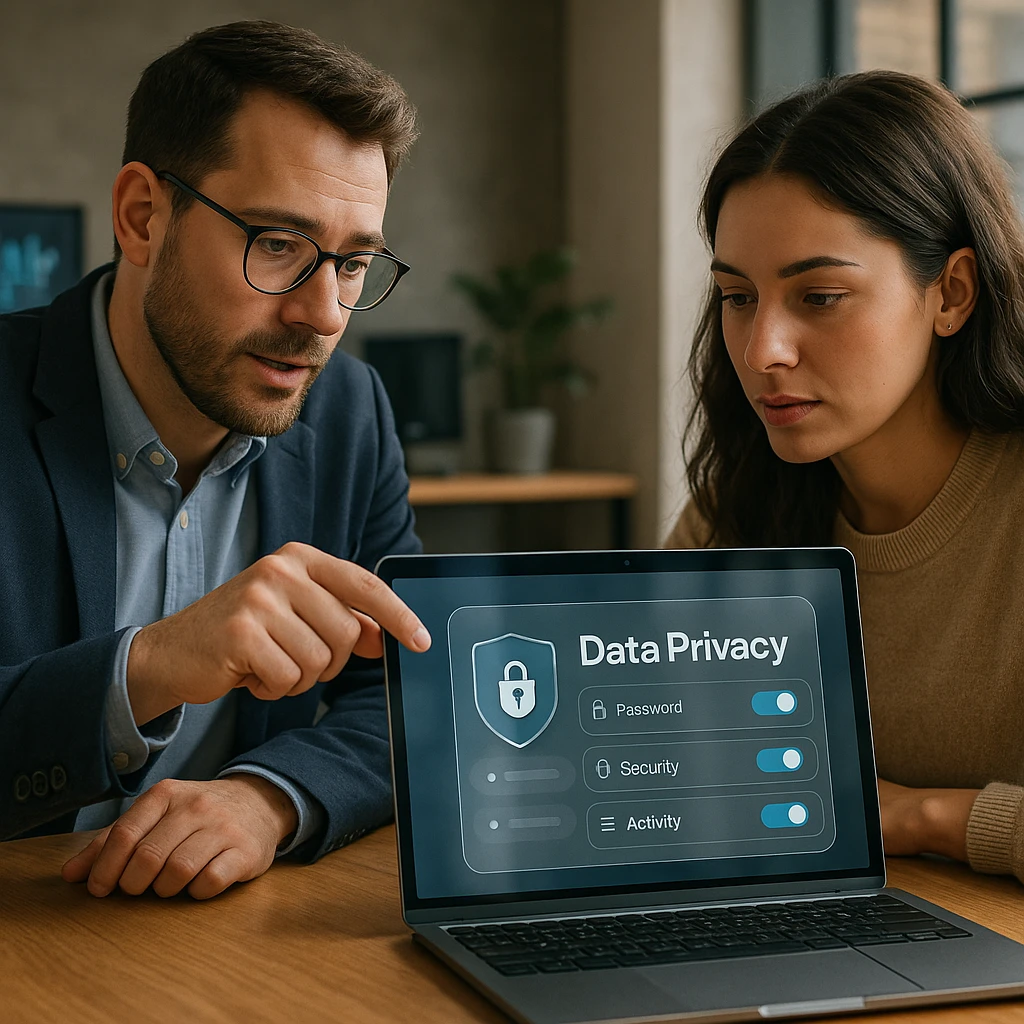
Long-Term Data Protection Strategy
Consider implementing these measures to protect sensitive business communications:
- Separate sensitive discussions to private, AI-free channels when possible
- Regular data audits to understand what information is being processed
- Alternative communication tools for highly confidential discussions
- Legal review of updated terms of service and privacy policies
Alternative Solutions for Secure Communication
If Slack’s AI approach doesn’t align with your company’s privacy requirements, consider these alternatives:
Traditional Communication Platforms
Microsoft Teams offers more granular control over AI features and data processing, with enterprise-grade security options.
Discord provides team communication without mandatory AI processing, though it’s less business-focused.
Privacy-First Alternatives
Signal offers end-to-end encrypted group messaging for sensitive discussions.
Element provides secure, decentralized team communication with full data control.
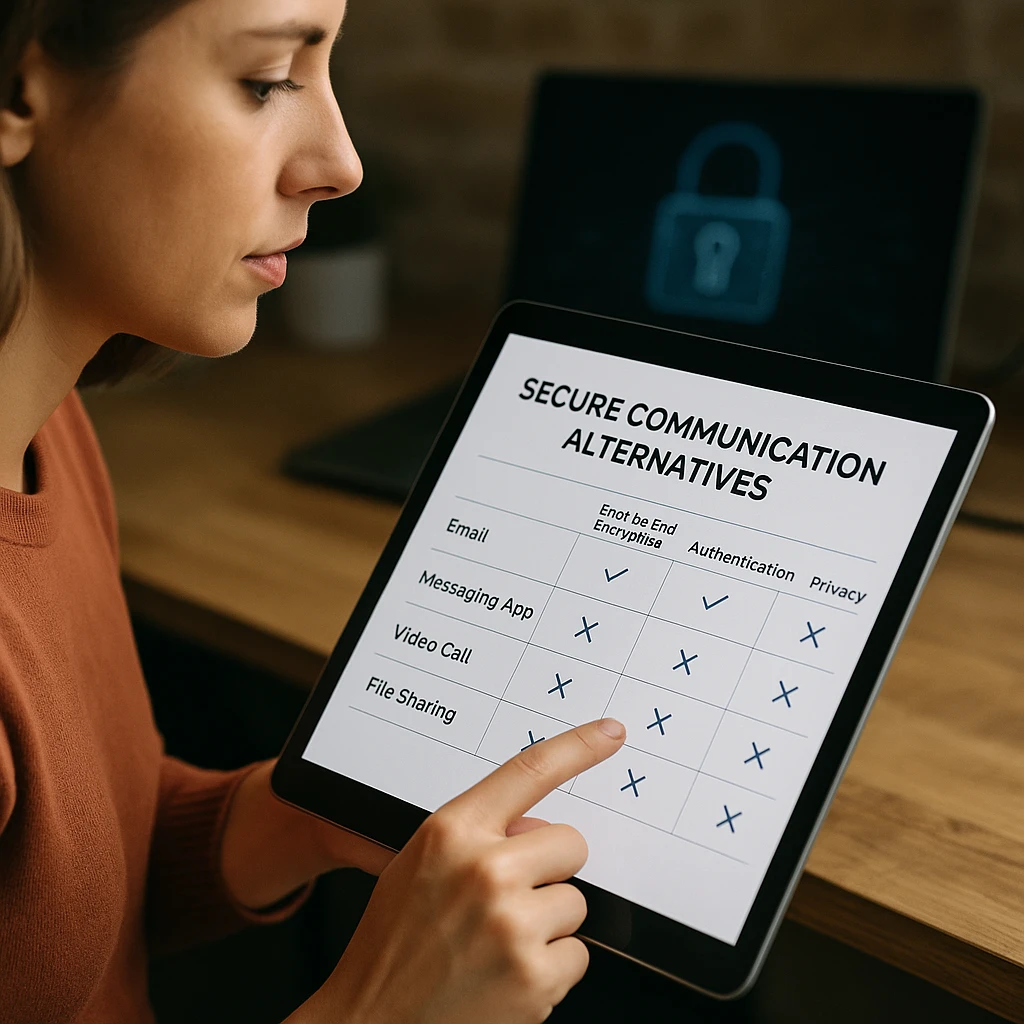
Secure Huddle Recording Alternatives
For businesses seeking control over their huddle recordings and summarization, ScreenApp’s AI Note Taker offers a privacy-focused alternative to Slack’s automatic huddle recording. With ScreenApp, you get:
- Manual recording control - only record huddles when you choose to
- Private AI processing - no training on your sensitive business discussions
- Secure data storage - with clear data retention and deletion policies
- Custom summarization - tailored to your specific meeting needs
You can also use ScreenApp’s Meeting Minutes Generator to create professional huddle summaries without automatic AI processing of all your team conversations.
Benefits of Controlled Huddle Recording
Unlike Slack’s automatic huddle recording system, controlled alternatives provide:
- Explicit consent for each recording session
- Selective processing of only meetings you choose
- Enhanced privacy for sensitive business discussions
- Compliance control for regulated industries
The Broader Impact on Innovation
Slack’s approach represents a concerning trend in the tech industry where companies prioritize AI development over user privacy. This “opt-in by default” model creates several issues:
Stifling Open Innovation
When companies can’t control how their data is used, they’re less likely to:
- Share innovative ideas in digital channels
- Collaborate openly on new projects
- Discuss competitive strategies in team communications
- Provide honest feedback about products and processes
Competitive Disadvantage
Businesses using Slack may inadvertently share competitive intelligence through AI training data, potentially benefiting competitors who access similar AI tools trained on their communications.
Trust and Transparency Issues
The automatic opt-in approach undermines trust between businesses and their communication platform providers, forcing companies to choose between productivity tools and data privacy.
What This Means for Your Business
Short-Term Implications
- Review all Slack usage in your organization immediately
- Assess data sensitivity of your typical Slack communications
- Consider temporary restrictions on sensitive discussions in Slack
- Evaluate alternative tools for confidential communications
Long-Term Strategic Considerations
- Develop a comprehensive data governance policy that addresses AI processing
- Create guidelines for sensitive communication across all digital platforms
- Invest in privacy-focused tools that give you control over your data
- Stay informed about platform changes that could affect your business data
Frequently Asked Questions About Slack Huddle Recording
Can I turn off automatic huddle recording in Slack?
The ability to disable automatic huddle recording depends on your Slack plan and admin settings. Enterprise plans typically offer more control over huddle recording features than Pro plans. Check your workspace settings under “Huddles & Audio” preferences.
Are all Slack huddles recorded automatically?
Yes, Slack Pro plans now include automatic huddle recording and AI summarization by default. This means every huddle conversation is captured, transcribed, and processed unless specifically disabled by workspace administrators.
How long are Slack huddle recordings stored?
Slack huddle recordings are stored according to your workspace’s data retention policies. This can vary from 30 days to indefinite retention depending on your plan and settings. Check with your workspace admin for specific retention periods.
Can I delete individual huddle recordings?
The ability to delete specific huddle recordings varies by user permissions and workspace settings. Workspace owners and admins typically have more control over huddle recording deletion than regular users.
Do participants get notified about huddle recording?
Slack provides notification when huddle recording features are enabled, but the visibility of active recording during individual huddles may not be immediately obvious to all participants.
Is Slack huddle recording GDPR compliant?
Slack claims GDPR compliance for their services, but automatic huddle recording without explicit per-session consent raises questions for EU-based businesses. Consult legal counsel about your specific compliance requirements.
Can I access transcripts of my huddle recordings?
Yes, Slack provides access to huddle transcripts and AI-generated summaries through your workspace’s message history and file sharing features.
What happens to huddle recordings when someone leaves the company?
Huddle recordings typically remain in your workspace even after participants leave the company, as they’re tied to the workspace rather than individual user accounts.
Are there alternatives to Slack huddle recording?
Yes, several alternatives offer more control over recording and summarization, including dedicated meeting recording tools, privacy-focused communication platforms, and selective AI transcription services.
Taking Control of Your Huddle Recordings
Slack’s automatic huddle recording represents a significant shift in workplace communication. While AI summarization can boost productivity, it shouldn’t come at the cost of privacy and data control.
Best Practices for Huddle Recording Management
- Audit current settings - Review your workspace’s huddle recording policies immediately
- Establish recording protocols - Create clear guidelines for when huddles should be recorded
- Inform team members - Ensure everyone knows when huddle recording is active
- Evaluate alternatives - Consider tools that give you explicit control over recording decisions
- Monitor compliance - Regularly review how huddle data is being stored and used
Making Informed Decisions About Huddle Recording
The key to managing Slack huddle recording effectively is understanding your options:
- For sensitive discussions: Use alternative communication methods or platforms with explicit recording controls
- For routine team check-ins: Leverage automatic summarization while being aware of data implications
- For client communications: Consider whether automatic recording aligns with client privacy expectations
- For compliance-sensitive industries: Evaluate whether automatic recording meets your regulatory requirements
Your team’s conversations contain valuable insights and intellectual property. Whether those conversations become training data for AI systems should be your choice, not an automatic default.
The future of productive team communication lies in tools that enhance collaboration while respecting your control over sensitive business discussions.
